This previous Thursday, under a glorious October full moon, marked by the end of the annual Three Month Rains Retreat, called Vassa, I set aside some time to reflect over a journal entry generously shared by the English Theravada monk, Ajahn Jayasaro, whom I greatly revere. Vassa is the time of year when Buddhist monks cease traveling to deepen ones meditative practice. Throughout Vassa, there are special days designated for specific contemplation. In some cases, engaged interaction with other monks is required to offer more direct insight as to the importance of a particular practice.
Please read the passage below from Ajahns Jayasaros recent journal entry.
I love this. As one who lives in a radically intimate community I know very well how important clear communication is and how quickly things fall apart when communication breaks down. I think all of us know how important this is, regardless whether or not we live in an eco-village, as do I, or a monastic “sangha”, as does Ajahn Jayasaro, or within a suburban household in say, Indiana. Learning how to develop mature communication is essential for all beings. Even four-legged and winged ones. Heck, even trees have developed highly advanced ways to communicate via their roots among the subterranean realms.
When feelings go unexpressed for too long, bitterness, misunderstanding, sadness, etc. are almost always inevitable. Yet whereas trees and dolphins always share when sharing is required, this skill comes harder for homosapiens. No matter what community I have spent time with, whether with fellow farmers, artists, educators, pagans, Christian, Hindu or Buddhist monks, putting in the necessary time and effort to develop mature communication skills is seldom prioritized, and as such, we suffer.
You do not need to be a Buddhist to understand the importance of what Ajahn Jayasaro is sharing here. Whether working with our family, friends, supposed enemy’s, etc. if we are going to ever properly develop mature relations that are sustainable and empowering than at some point we need to prioritize building the capacity to confront both ourselves and others, skillfully. This takes great courage. Especially in places like Thailand (where incidentally both Ajan Jayasaro and I live) where direct communication is considered rude, a nearly impossible act.
Ukrainian artist Alexander Milov Burning Man sculpture called The Love
…
For many, in terms of our capacity for maintaining good relations, the most challenging task of all is to genuinely receive critical feedback from others and not take it personally. It can be hard enough to honestly share with others our own frustrations with them, but to be able to truly listen to what others feel is challenging about us triggers most of us to an unbearable degree. As such, we avoid such interactions like the plague.
Yet, we cannot grow if we refuse to recognize what isn’t working. And so often we simply cannot see what is preventing our ability to fully bloom. This is one, of many reasons, why taking the time to nourish meaningful relationships is so important. We need strong, healthy companions in our lives whom we respect and trust enough to be able to see our shortcomings, whom we can receive feedback from without feeling as though they are merely trying to hurt us. In the Plum Village tradition, this courageous exchange is called “shedding light”, having a trusted friend share with you where you have room to grow.
Recently I have begun taking guitar lessons. I have not received a proper guitar lesson in over twenty years. The last time I took a guitar class was in 1998. I remember it like it was yesterday, shredding along to Whole Lotta Love by Led Zeppelin. (Yikes!) Well, at some point I guess I felt like I had more or less figured out the basics of how to play. I knew many chords and could easily read tab, get through the typical scales, etc. So I quit taking lessons. And ever since then I have been playing the same things, over and over and over again, virtually unaware that essentially nothing new has developed in over two decades. Oh, I have gotten better at playing Whole Lotta Love, and can blaze through a pentatonic scale alright, but with no expert feedback, no one near me to offer insight regarding what I could do to improve my licks, I have merely continued playing the same stuff over and over, for twenty some odd years.
Billy Strings, the guitar virtuoso who has recently shot to the top of the charts performing with everyone from Post Malone to Phish inspired me to take lessons again when I watched an interview with him where he shared that he, like me, had decided to take lessons late in his career. To me he seems like a master, yet he vulnerably shared in the interview that he was just winging it most of the time, that he didn’t really know what the heck he was doing, and that, after taking lessons, after finally laying down his ego and intentionally listening to other peoples feedback, he had finally begun to understand what being a musician is all about.
Billy Strings, with his dad, Terry Barber
…
As we age, we tend to, subconsciously or not, get into rigid patterns, we go through our routines and just assume we know what we are doing. Additionally, it isn’t unusual for those of us in mid-life to write someone younger than us off right off the bat, swiftly assuming we know more than they do simply because we are older. And strangely enough, those who know us the most, those who we live with, our romantic partners and family, the very ones who are with us enough to truly see where we are falling short, we grow irritated by them, taking them for granted, forgetting that it is in fact they who likely know more about us than anyone else.
Everyone has something to teach us. Even the ones who annoy us the most. And just as some co-workers, relatives, etc. can from time to time drive us crazy, we too likely are driving others mad as well. It takes real courage to not simply avoid people when things get challenging but to creatively find ways to address matters skillfully so that all parties gain insight. In the journal entry shared above, Ajahn Jayassaro points out ways in which the Venerable. Śāriputra (a very close disciple of the historic Buddha) addressed such challenges by encouraging us to establish these five points of reference:
1) Speaking at an appropriate time, not an inappropriate time
2) Speaking truthfully, not falsely
3) Speaking gently, not harshly
4) Speaking in a beneficial way, not in a harmful way.
5) Speaking with a mind of *mettā, not harbouring resentment.
When I reflect over these clearly defined reference points for how to better communicate, I cannot help but reflect upon how very unpopular this is in modern society. We hypocritically attempt to instill these values in our children, having teachers punish them for not speaking with similar courtesy, yet when we consider who in our society is actually being valued enough to find themselves in places of power, when we look deeply into the ways in which they speak, how they listen, well, it should be of no surprise then, that for many children it is hard to follow such noble ideals.
We must be what we wish to see. And this isn’t easy. I aspire to come together with my own community and, in ways similar to what many of the monastic community in Thailand just did a few days ago, openly express grievances and graciously exchange useful feedback. The fact is however, my community has not yet developed such a capacity. For reasons of culture, personal preferences, etc, even though we are, compared to many other communities, extremely “woke”, we still have a long way to go before we learn how to collectively address conflict with skillful means. It is a true art, one that takes real courage, dedication and time. (*timing is everything and will be explored in detail in a future offering.). And most of us, to be fair, are not monks.
My wife and I have received several invitations recently to offer talks on how to build healthy community. Most who approach us already have a preconceived idea of what a “healthy” community looks like. In general, modernities understanding of health seems far from grounded reality. Purity can be dangerous. As has been explored many times on this Substack, real life is complex, unpredictable and messy. Although I cannot say with any authority what true health is, it seems far too chaotic and ever-changing to be pinned down scientifically. And it certainly isn’t a think devoid of obstacles. As the Zen saying, “No mud, No Lotus” so eloquently suggests, tension is required for growing to occur. This seems true of all things. No pain, no gain.
Interacting with others regarding conflicts can be hard. Learning new skills takes real dedication and a willingness to practice. As anyone who has committed to a romantic partner for more than the first few months of electric, firey passion can attest, eventually things sober and get real. This is when we learn who we really are. Do we run? Do we hide? Do we blame others for every boredom and inconvenience? Or, on the contrary, do we blame ourselves for everything, convincing ourselves that we are pathetic and utterly incapable of developing a larger capacity for true understanding? I for one do all of these things, regularly. I still have much to learn.
I know my community will not come together like monks to “shed light” on each other. The idyllic community that so many think we are, or which they themselves wish to build does not yet exist here. But the conditions for such a place to one day come into fruition most certainly do. And we are dedicated to nourishing these seeds. It takes hundreds of years for a village to mature to a place where elders are readily available to hold the kind of space we are here waxing poetic of. And we need to be ok with this, and not run.
I am determined to try, a little more each day, to face my fears and show up again and again to the table, to listen and to ask others how they are doing, and how they, in turn feel I am doing. I will fail. I will try again.
…
:::Breathe, and smile:::
If you could kindly tap the ❤️ at the top or bottom of this newsletter it will make it easier for other people to find this publication. Ahéhee'! བཀའ་དྲིན་ཆེ།! 謝謝! Thank you! ขอบคุณ!شكرا ! תודה! Спасибо! धन्यवाद! Cảm ơn bạn! អរគុណ! Merci y Muchisimas gracias!
SHOW NOTES…
Ajahn Jayasaro (Shaun Michael Chiverton) was born on the Isle of Wight, England in 1958. In 1978 he became a disciple of Ajahn Chah, one of Thailand’s most renowned Buddhist monks and meditation masters, at Wat Pah Pong forest monastery in Northeast Thailand. He took full ordination, with Ajahn Chah as his preceptor, in 1980.
Dhamma Teachings by Ajahn Jayasaro
*metta - Loving Kindness
#maypeaceprevailonearth

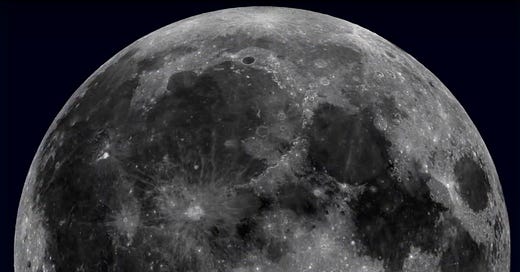


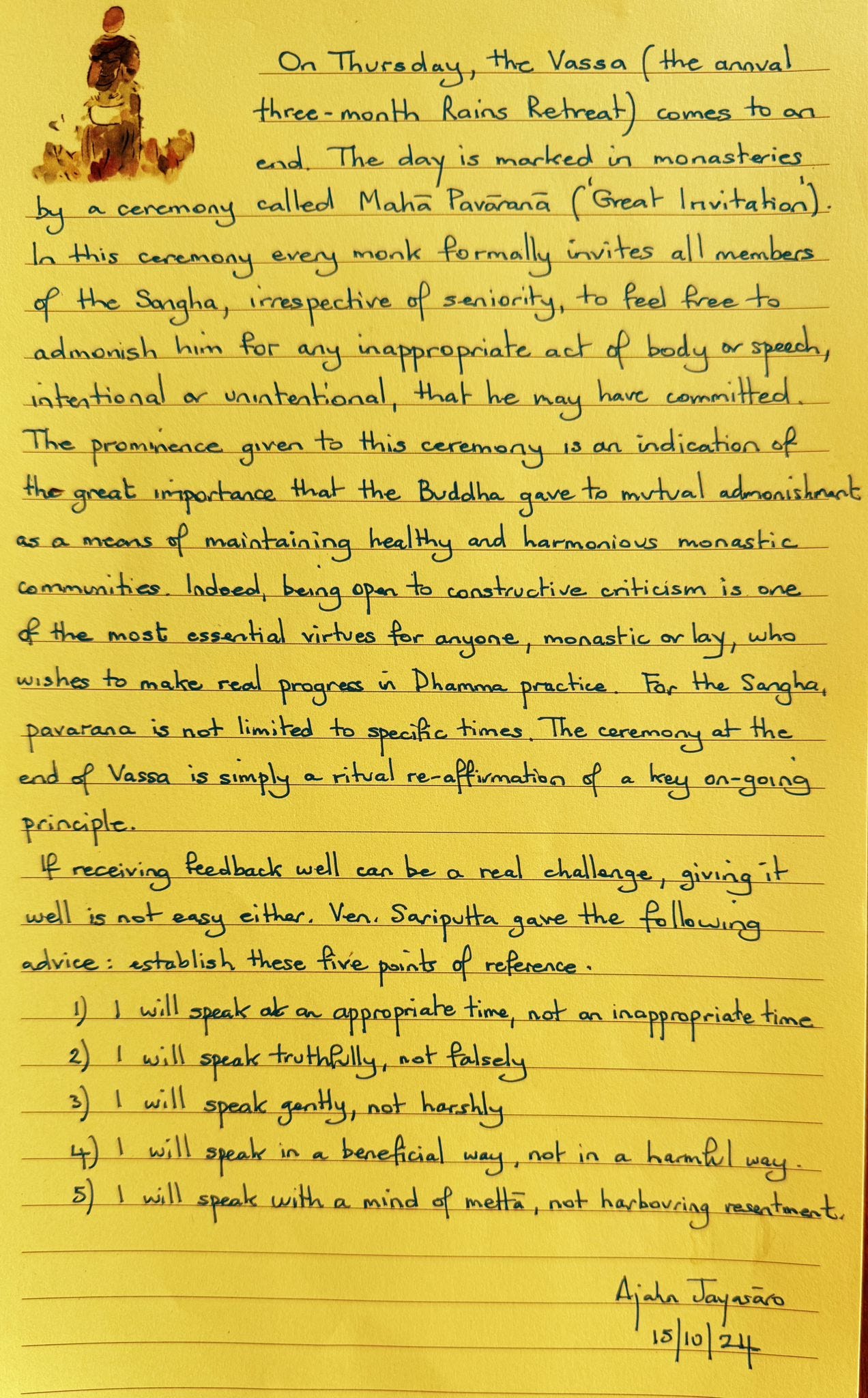
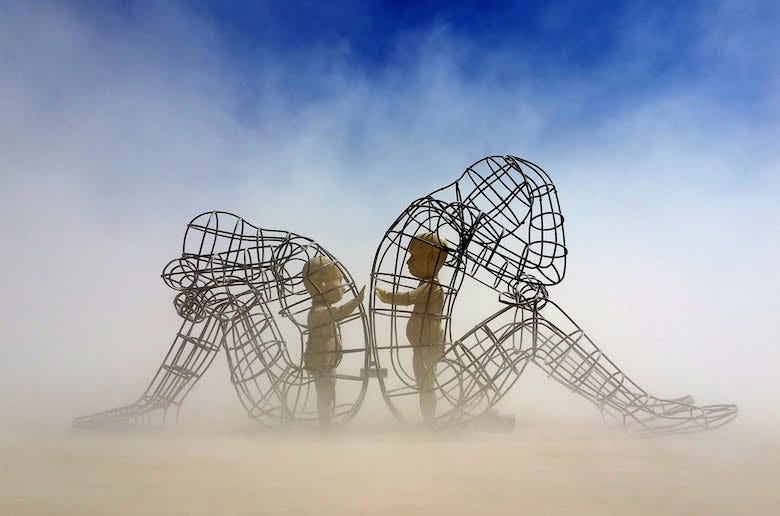
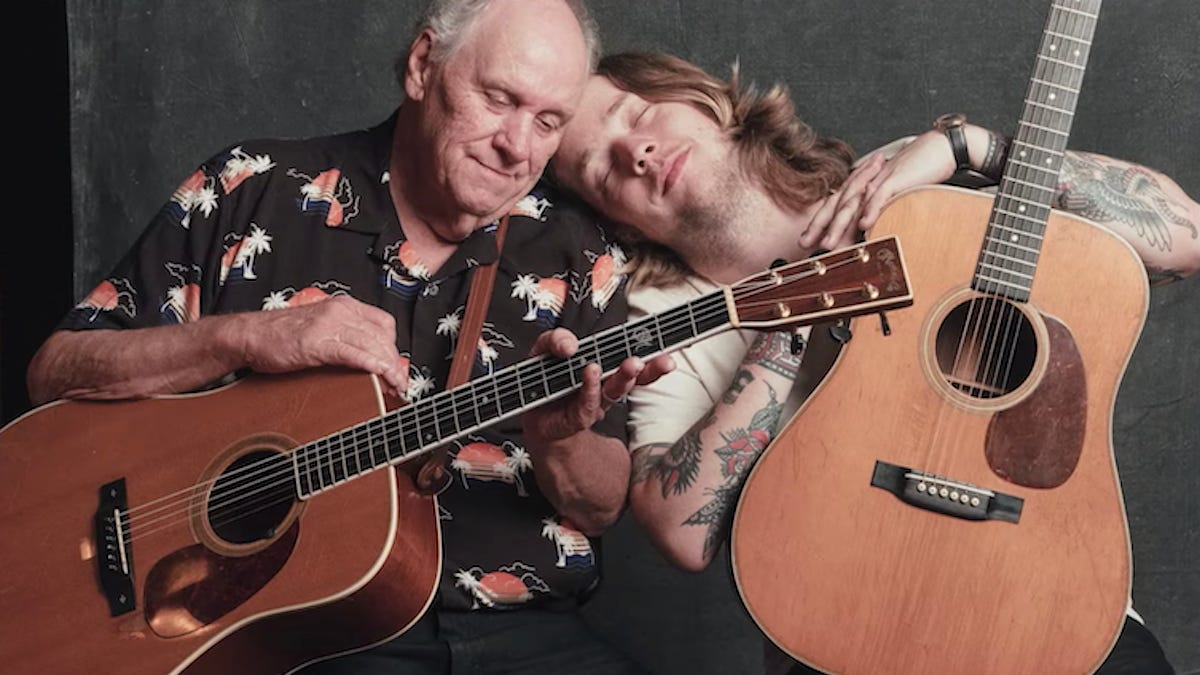

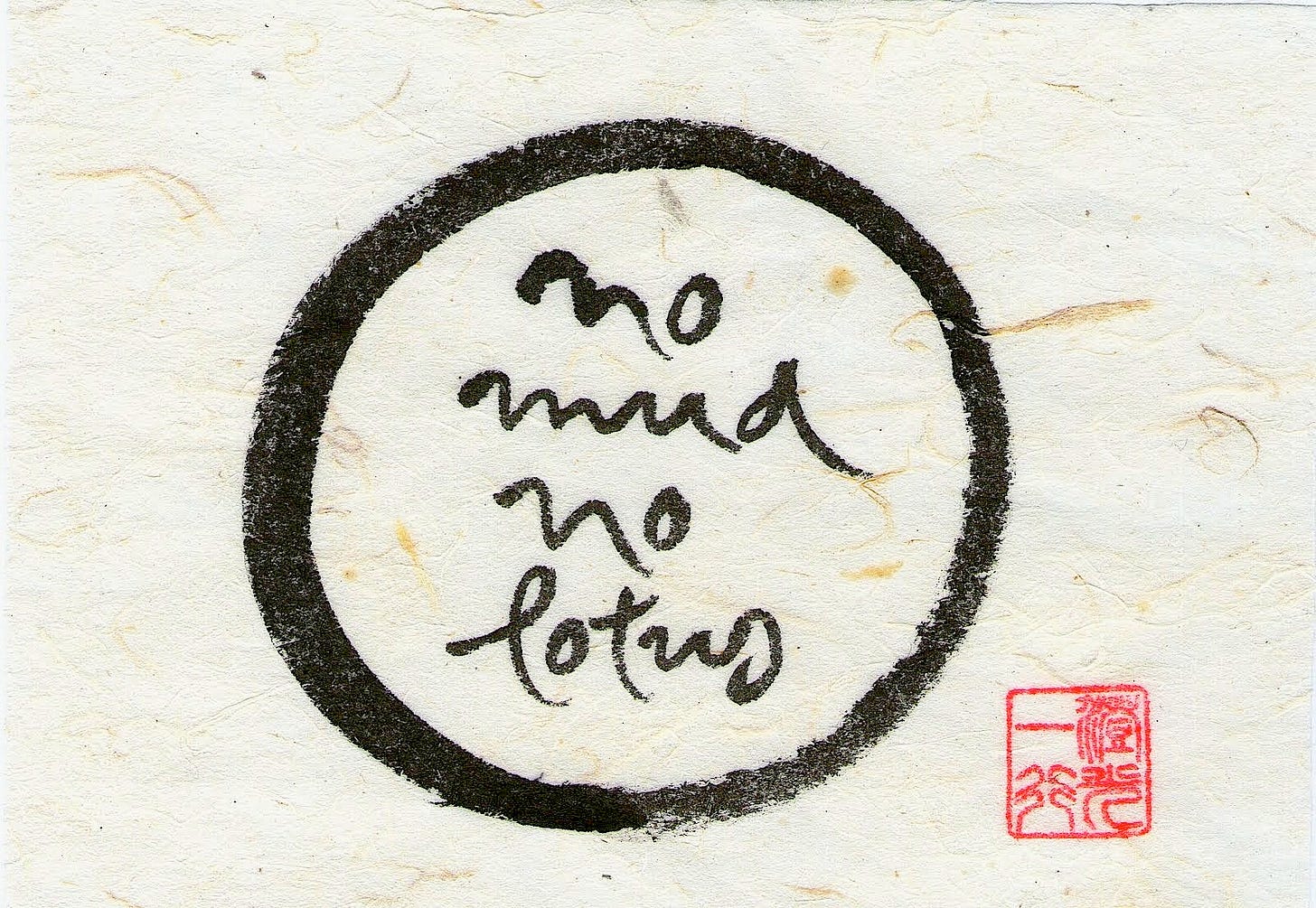



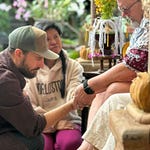

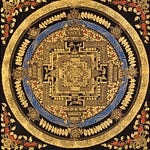
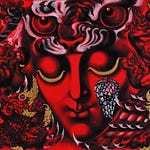
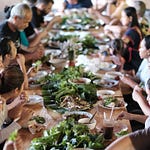
Share this post